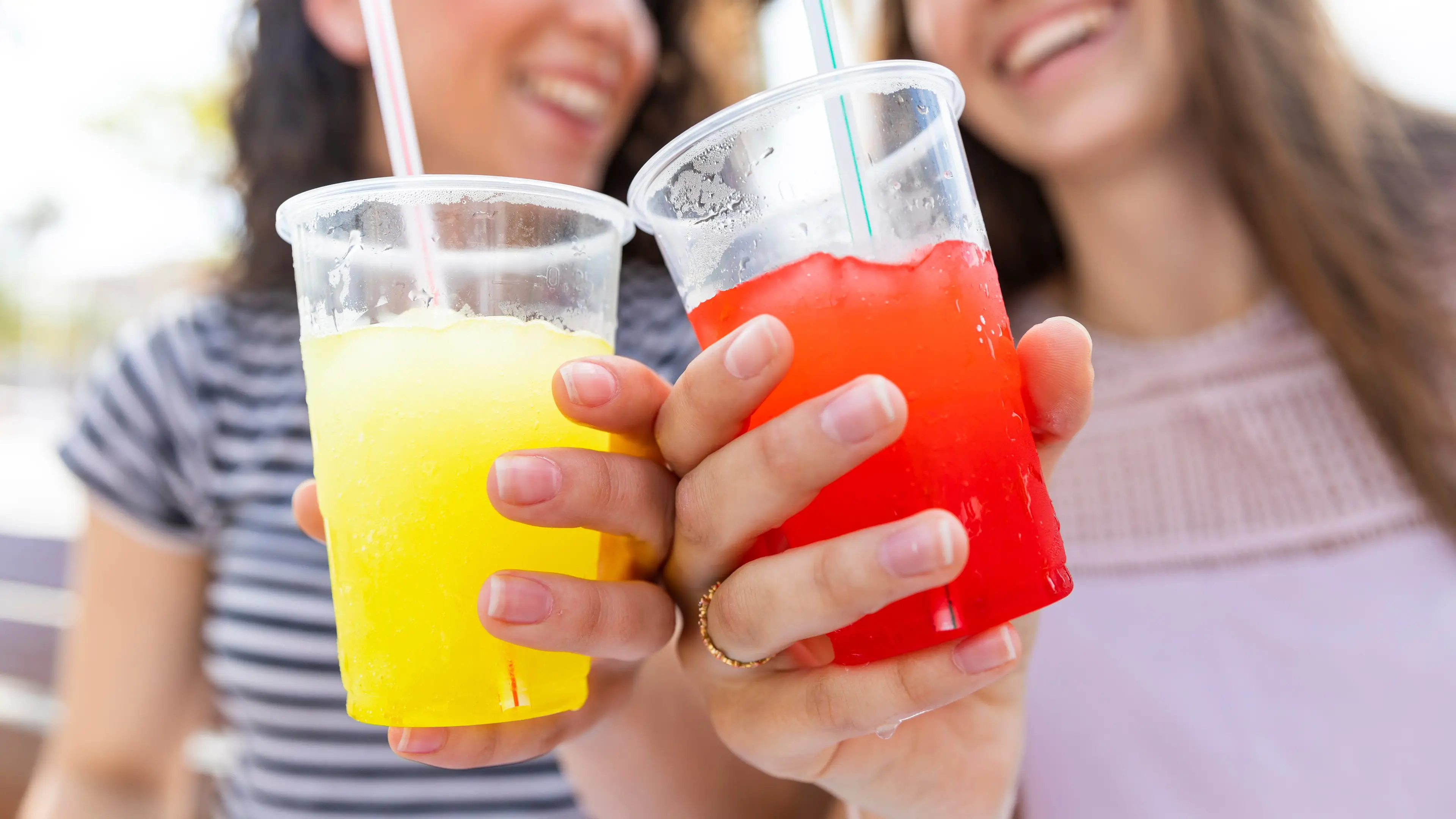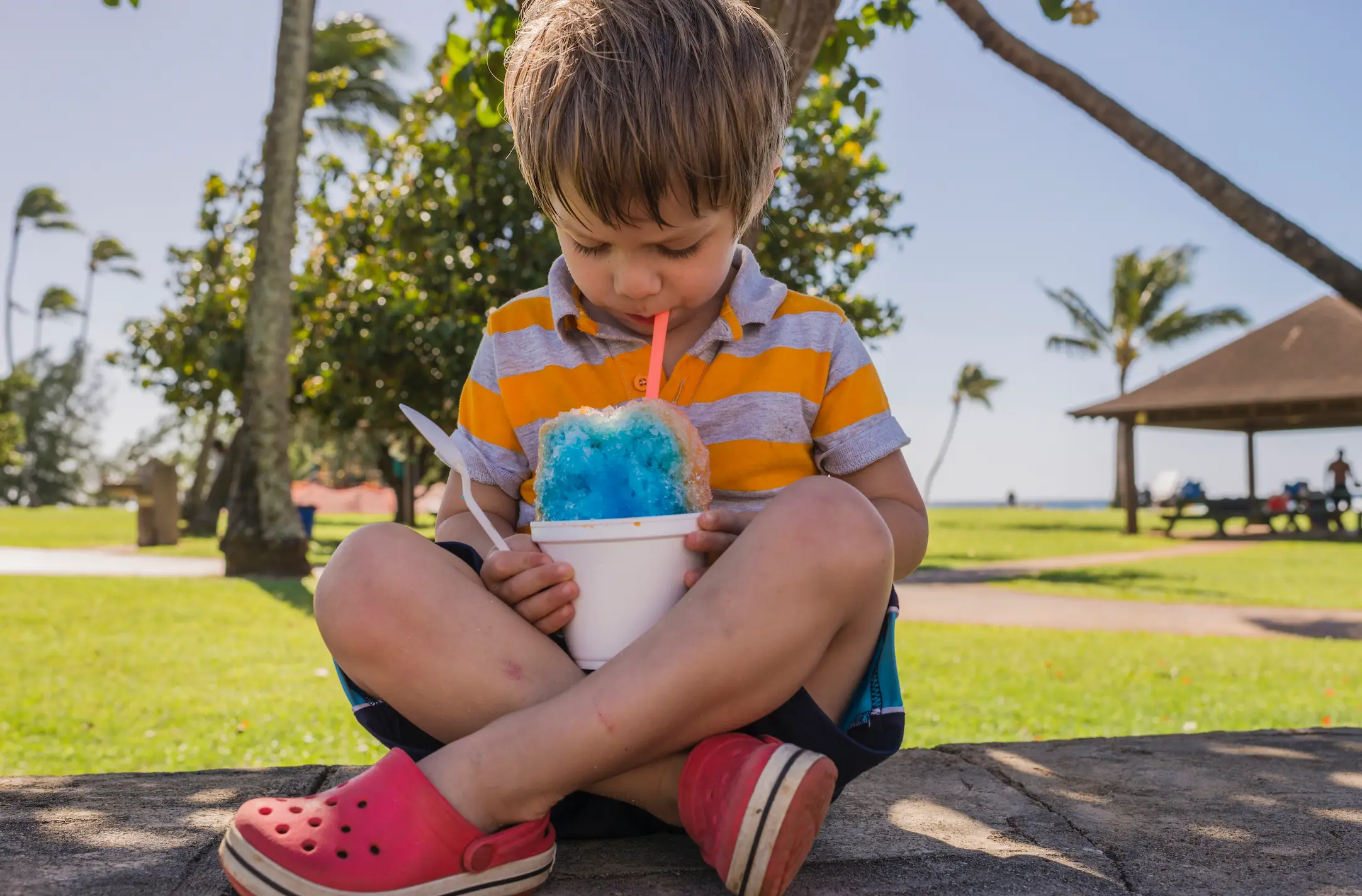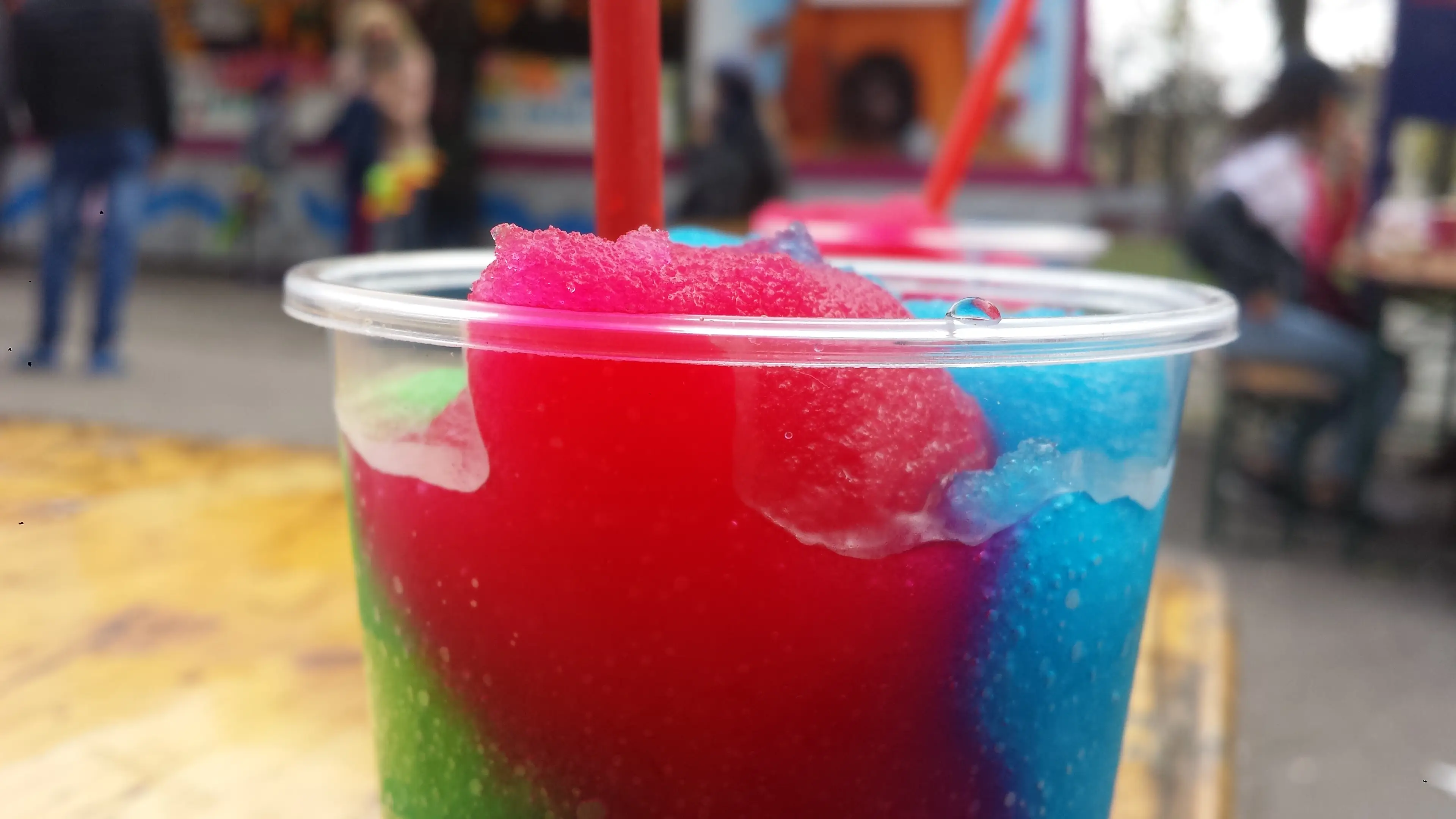
Health officials have made an urgent plea surrounding children's consumption of slushy drinks, as a certain age group may require 'emergency treatment' following a rise in cases.
What does every kid want more than anything on a boiling hot day? A slushy.
The blue and red ice sensation was the pinnacle of the summer holidays, but perhaps not for much longer.
To be the bearer of bad news, experts have issued a warning for parents with children under eight, due to rising cases of complications after children consume the - some of whom have been hospitalised after falling seriously ill.
Advert

Slush ice drinks can contain glycerol, an ingredient which can be used as a substitute for sugar, to prevent the drink from freezing solid.
And while businesses have been advised to only add it in at the minimum quantity that is necessary, it could still prove to be dangerous for little ones.
In a fresh warning amid the hot weather, the UK Food Standards Agency (FSA) has urged parents to consider the risks of glycerol intake in young children over the longer-term.
FSA chair Professor, Susan Jebb, said: "In the warm weather, children may be more likely to consume slush ice drinks containing glycerol, so it's important that parents and carers are aware of the risks.
"As a precaution, the FSA is recommending that children under seven do not consume slush ice drinks containing glycerol.
"With our counterparts in Scotland, we will be talking to parent groups and charities to provide updated guidance that is useful and applicable across the UK."
But the warnings don't stop there.

A new study revealed 21 cases of two-to-seven-year-olds in the UK and Ireland, who needed emergency treatment soon after drinking a slushy product.
The concern over younger children consuming glycerol is due to the ingredient causing shock, hypoglycaemia (low blood sugar), and a loss of consciousness in more severe cases.
The study into the 21 cases, which has now been published in the journal Archives of Disease in Childhood, saw all the children needing emergency medical care in A&E within an hour of consuming the drink.
"While the symptoms of glycerol intoxication are usually mild, it is important that parents are aware of the risks - particularly at high levels of consumption," says the FSA.
The findings of the latest risk assessment also focused on children with lower-than-average body weight for their age.
As children's weights vary, body weight has been converted to age.
The precautionary approach was introduced to provide more practical advice for parents and businesses alike.
